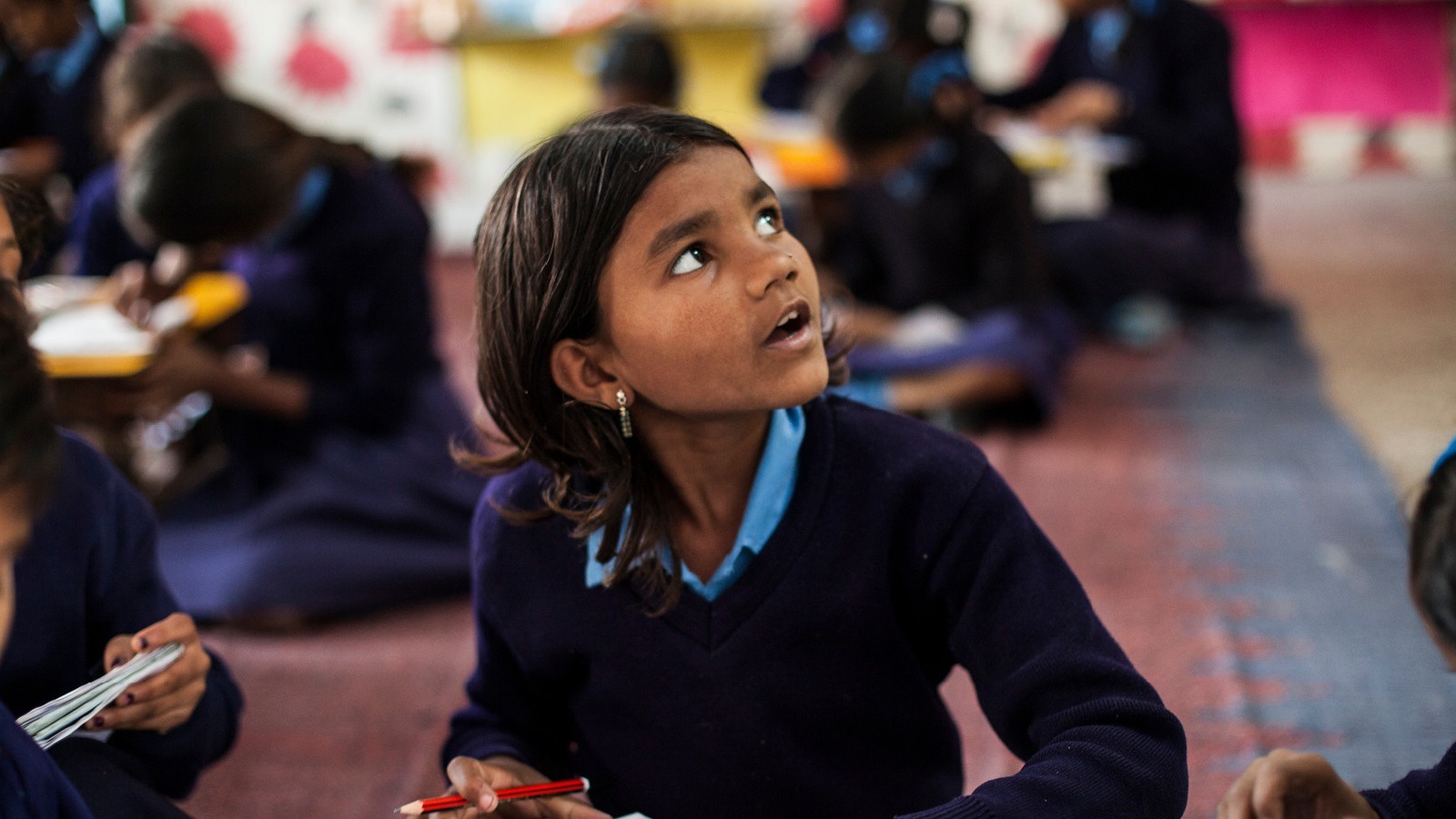Scene 1: A bright, cheerful third-grade classroom in a government school in Mumbai. The school is part of the ambitious Mumbai School Excellence Program (SEP). A class of thirty students sitting in four groups. The teacher is actively engaged with one group. Children in the other groups are busy, each focused on doing a different independent activity. There is a hum of learning. Every once in a while a child gets up and replaces their study material from one of the several bins neatly arranged along the walls of the classroom.
Scene 2: A program review meeting at Municipal Corporation of Greater Mumbai (MCGM.) The conference room is plastered with data-intense score cards documenting the academic and operational performance of the leadership and operational teams – which include three top Indian NGOs, UNICEF, the Michael & Susan Dell Foundation, McKinsey & Co, and city leaders – behind MCGM’s School Excellence Program. The municipal commissioner reviews each scorecard carefully as a three-hour meeting begins. He asks questions and probes a range of topics. But two themes cut across all discussions: Improvement in student learning and sustainability. How will each organization in the room ensure that improvements to the Mumbai public school system happen (e.g., that student learning levels are measured and improving), and can last?
Both scenes are atypical. Government schools are often both oversubscribed and underresourced. Their students often struggle to meet basic literacy and numeracy requirements. As a rule, city government leaders do not invite NGOs, philanthropists, international development agencies and consultants into their inner sanctums to regularly and repeatedly deep dive into data about performance.
With the nascent School Excellence Program (SEP), however, the Municipal Corporation of Greater Mumbai (MCGM) has begun to design a new normal. The program’s goal is to ensure that 1) all primary students in government schools have access to effective learning environments like the one described above, and that 2) their learning levels measurably and meaningfully improve. Its approach — involving expert players from a range of sectors in the implementation and design stage — adds a critical dose of rigor and discipline to the effort.
The Mumbai School Excellence Program: India’s first ever citywide school turnaround program
Mumbai’s School Excellence Program is the first and only citywide school turnaround program ever attempted in India. The multidimensional initiative seeks to transform the Mumbai school system into a benchmark for India’s government school systems.
What will it take to achieve lasting change? As a starting point, the leadership and operational teams involved in SEP have set measurable goals that are both clear and ambitious. These include quantifiable improvements in:
- Student learning outcomes (for example, from a baseline average of “52 out of 100 on a simple test” to “80+ out of 100 on a similar test” as measured by both schools and external third-party assessments)
- Teacher, headmaster and coach competencies
- Operational processes in schools such as: the use of a proven and agreed-upon pedagogy in more than 80 percent of the classrooms three to four hours of weekly coaching support for each teacher
- Significant parent involvement with over 90 percent parent teacher association participation and effective functioning of community-based, school management committees (SMCs)
Data and discipline: A program management approach to scale and sustainability
A series of parallel measures, a handful of which will have a disproportionate impact, will help determine the success or failure of the program:
- Effective coordination: Given the complexity of the project, the foundation funded McKinsey & Co. to act as a backbone organization to hold the highly complex endeavor together. McKinsey’s mandate is to provide best-in-class program management for at least three years so that the education department can efficiently and effectively run, institutionalize and scale the process systemwide.
- Focus on sustainability: Long-term sustainability of the program will require that MCGM develop an organizational capacity for strong program management. Developing this capacity is one focal point of current efforts. Because buy-in and support from a cross-section of engaged stakeholders are also critical, the formation of a strong steering committee representing Mumbai business and civil society leaders is another focus. (Parental engagement, as spelled out above, is likewise a pillar of success.)
- Disciplined use of data: Regular evaluation of data to guide decisions is yet another lynchpin for success. Core applications of this practice include on-time execution of external assessments to measure the SEP’s effectiveness and formal performance reviews that apply data analysis to ongoing improvement.
Early progress
Mumbai is India’s most populous city and the fourth most populous city in the world. Improving the school system and reliably measuring and increasing student achievement will be — to put it mildly — no small tasks. Complex though the program is, early SEP wins are encouraging. Since it was started two years ago, the program has garnered strong support from the government. MCGM approved an unprecedented public-private partnership policy for measurably improving quality of education, and the first-ever system wide, third-party assessments were conducted in 2010. The program has been rolled out in 148 schools reaching roughly 45,000 students. At the leadership level, program reviews are held regularly, and all partners are accountable for their outcomes.
Achieving scale will take time. But with disciplined execution and ongoing commitment, we believe the program will succeed, both in improving the quality of learning for millions of students and in paving the way for other urban centers seeking to do the same.
